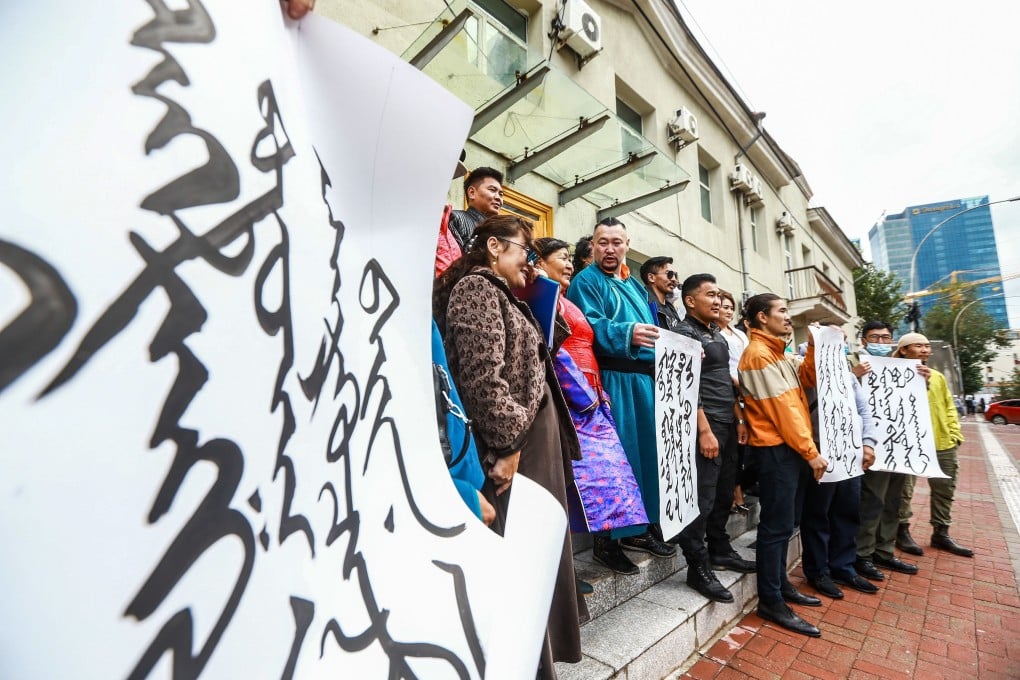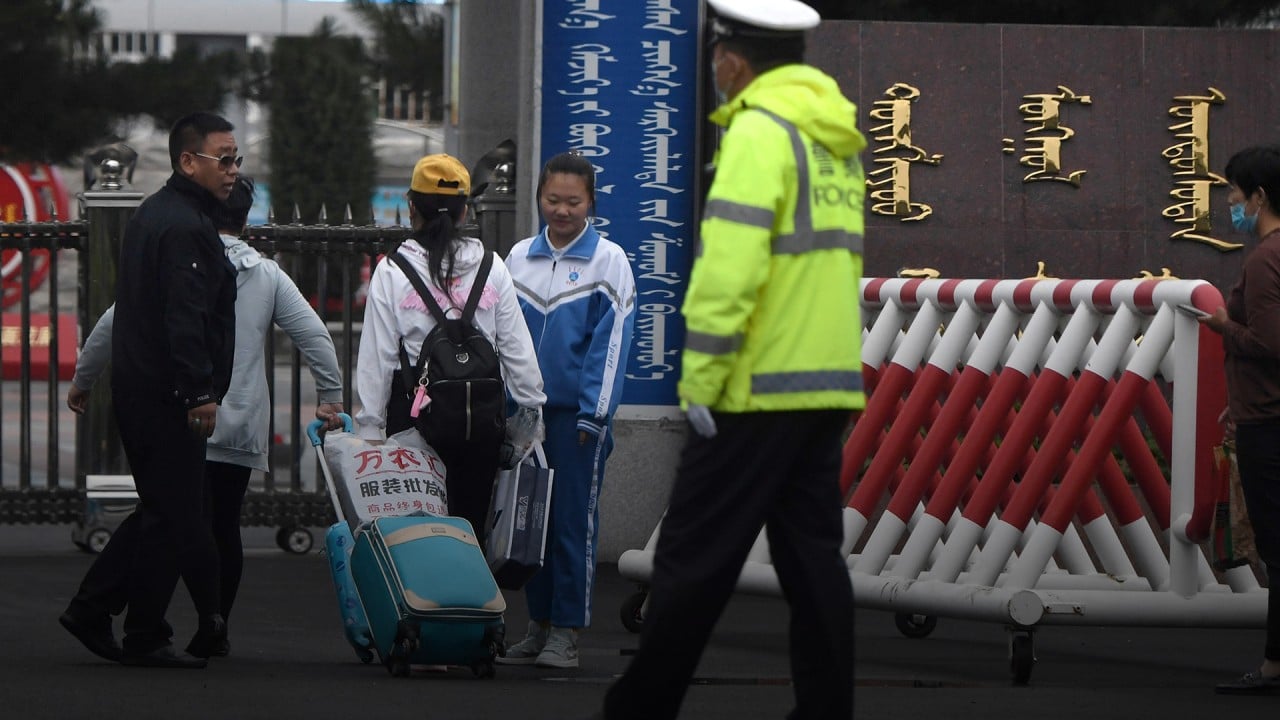Language rules for Inner Mongolia another step to erode ethnic groups in China
- Mandarin Chinese requirement part of an assimilation policy to achieve national unity through cultural identity
- Despite a fall in the number of Mongols being taught in their own language, the move has led to protests

Students staged walkouts, parents pulled their children out of school and petitions have been circulating online opposing the introduction of textbooks in key subjects, to be taught in Mandarin Chinese rather than the local language.
The reforms were announced just days before the start of the school term, with new textbooks for language and literature, morality and law, and history classes which will be compulsory across all grades in Mongolian schools by 2022.

03:11
Mongolians fear loss of languages as China pushes Mandarin at school
Tibetan and Uygur minority language schools have mostly been eliminated since 2017 and replaced by Mandarin Chinese instruction, in tandem with a Beijing crackdown on dissent and mass detention of protesters and opponents.